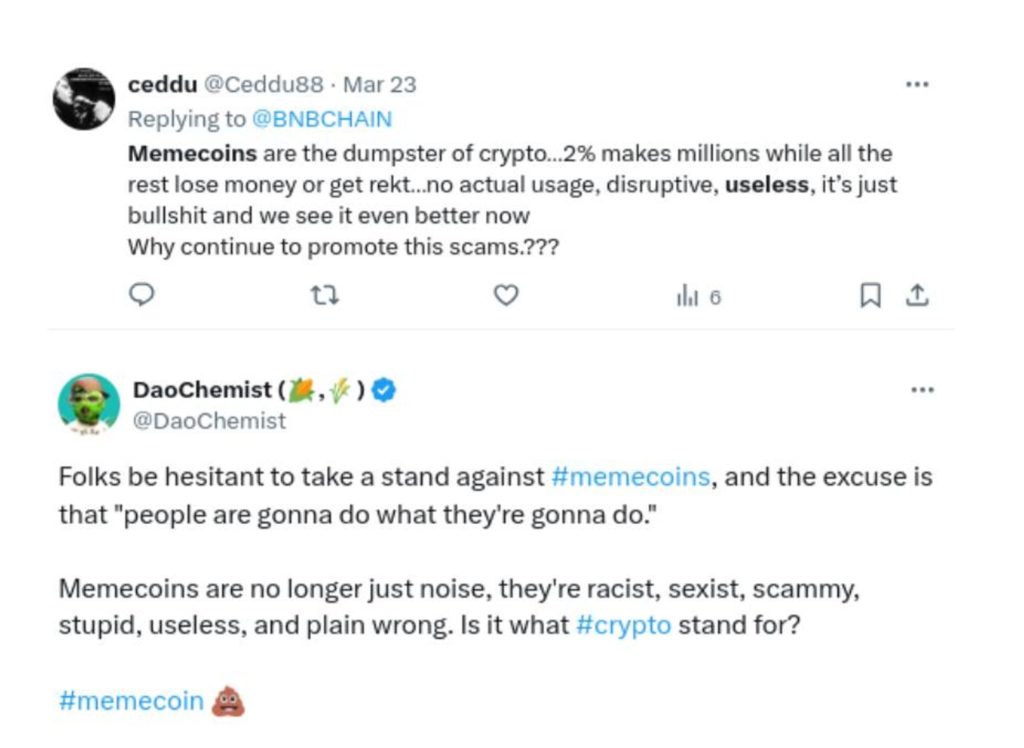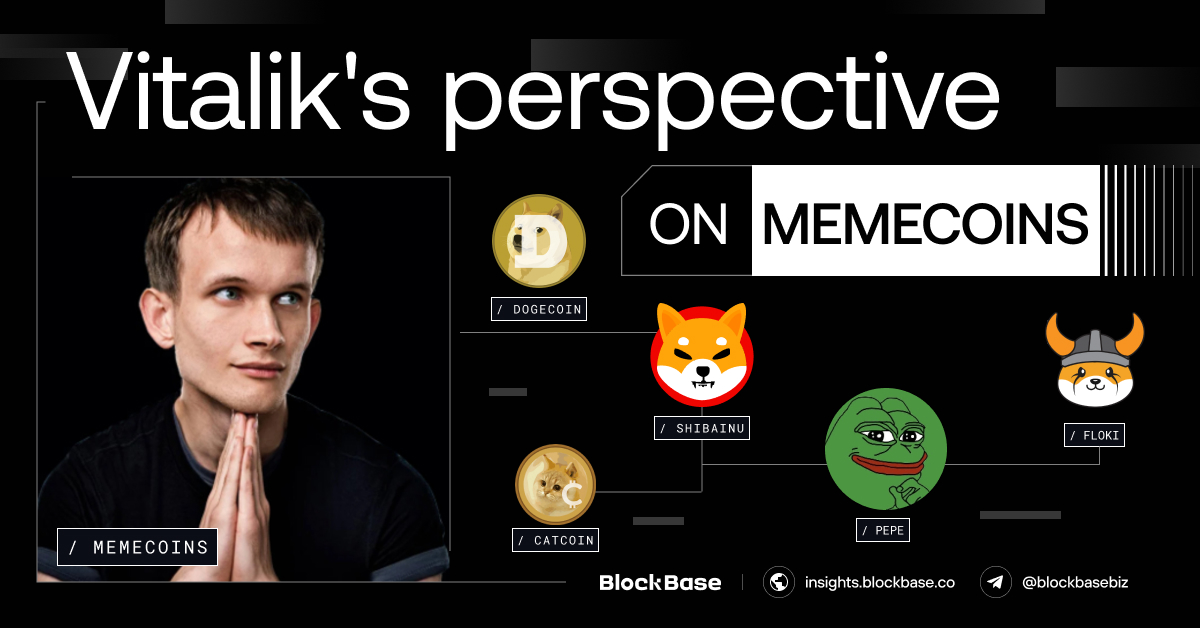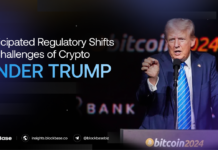In one of his latest blogs on 29th Mar 2024 – What else could memecoins be?, Vitalik Buterin delves into the intriguing yet contentious topic of “memecoins” within the realm of cryptocurrency.
Memecoins are cryptocurrencies primarily designed as a satirical or tribute representation of internet memes, often lacking substantive technological innovation or real-world utility. These coins have gained a lot of attention and attracted investments, thanks to the ever-changing trends of internet culture and the hype generated on social media, even though their origins may appear lighthearted and trivial.
He breaks down the two-sided nature of memecoins, pointing out their appeal and the dangers that come with them. On the positive side, memecoins provide entertainment and fun within the crypto world, showcasing the essence of internet culture and the playful nature of online communities. However, this fun aspect is contrasted with the unpredictability and speculative frenzy that often surrounds memecoin markets.
“Memecoins often seem to just go up and down in price and contribute nothing of value in their wake”
One of the primary concerns raised by Buterin is the lack of intrinsic value associated with memecoins. Unlike traditional cryptocurrencies with robust technological infrastructures and tangible use cases, memecoins often rely solely on the hype generated by social media and online communities. This reliance on sentiment-driven speculation makes memecoins particularly susceptible to market manipulation and sudden price fluctuations, posing significant risks to investors.

Apparently a bunch of Solana memecoins have recently been openly super-racist.
“Making games rather than coins, and making projects that people enjoy participating in.”
However, Vitalik proposed a much more positive philosophy, which is:
“If people value having fun, and financialized games seem to at least sometimes provide that, then could there be a more positive-sum version of this whole concept?” - Vitalik Buterin
A decade ago, just before the Ethereum project was made known to the public, he wrote an article for Bitcoin magazine proposing the idea that issuing coins could serve as a novel method for financing significant public endeavours. The underlying concept was that society requires means to fund crucial large-scale projects, and presently, markets and institutions (including corporations and governments) are the primary mechanisms available for this purpose. The communities can serve that purpose as well, thanks to blockchain and cryptocurrency.
Vitalik observed that coins that allocate a significant portion of their supply or fees to charitable causes are a potential example of interest for the community. Examples of such coins include AntiCancerCoin (supporting cancer research) and ClimateCoin (supporting environmental protection).
He presented a few notable past projects, such as “GiveWell Inu,” which contributed earnings to GiveWell, a non-profit charitable organization in the United States focused on altruism. Another example is “Fable of the Dragon Tyrant,” which supported projects related to anti-aging research. However, both projects failed shortly thereafter due to a lack of community engagement.
Notably, Vitalik Buterin was impressed with the memecoin Dogelon Mars (ELON) and happily donated half of ELON’s supply as charitable funds to the Methuselah Foundation, a global non-profit organization dedicated to supporting regenerative medicine and rejuvenation therapies. Since then, the project has established a strong and close relationship with the investor community.
Vitalik recognized this as an untapped potential niche, suggesting that if given the opportunity, it could create something even better, potentially laying the foundation for long-term and positive projects.
The information provided in this article is for reference only and should not be taken as investment advice. All investment decisions should be based on thorough research and personal evaluation.





